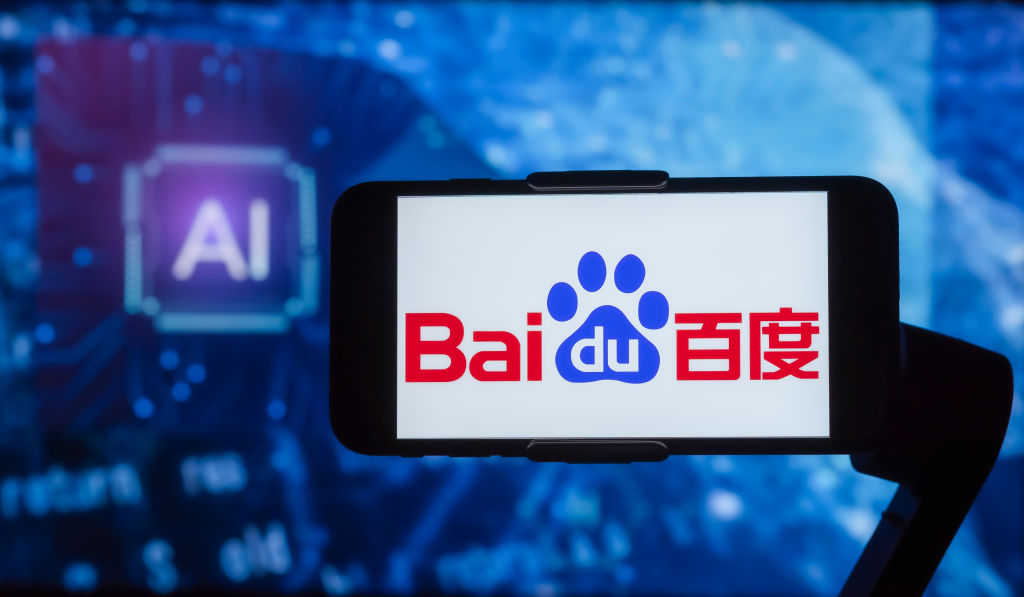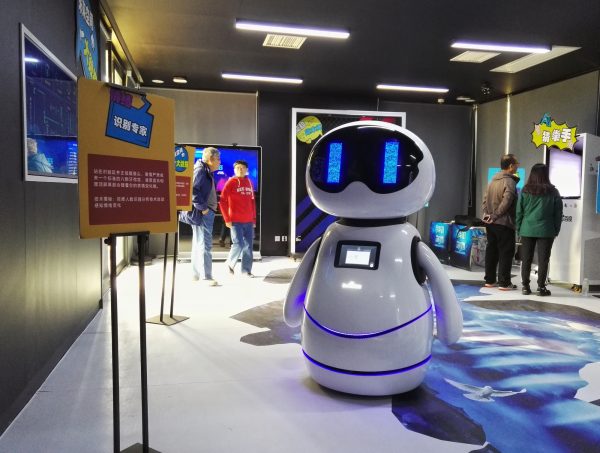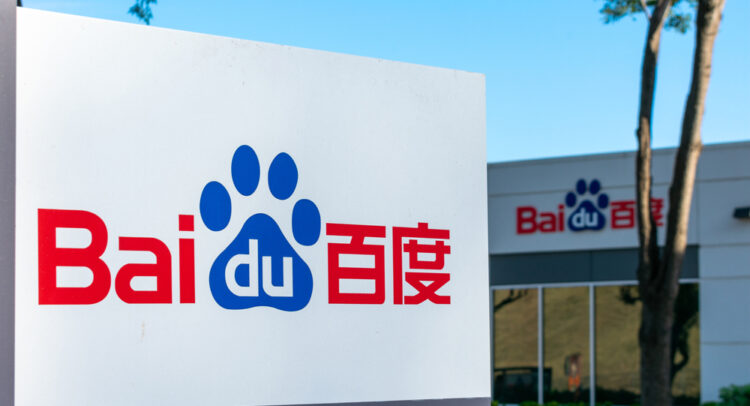Imagine a world where AI isn’t just a futuristic concept but a driving force transforming industries and everyday life. This vision is embodied by China’s leading AI and internet company, Baidu. From its humble beginnings as a search engine, Baidu has evolved into a powerhouse of innovation, pioneering in technologies like autonomous driving and voice-activated AI. With a strong focus on research and development, Baidu is not only reshaping the tech landscape in China but is also setting its sights on global expansion, making waves in healthcare, urban planning, and beyond.

History of Baidu: From Search Engine to AI Powerhouse
To truly appreciate Baidu’s current status as a leader in AI and internet technology, it’s essential to look back at its origins and growth trajectory.

Baidu’s origins
Baidu’s journey began in 2000 when it was founded by Robin Li and Eric Xu. The company was born out of a desire to improve internet search capabilities, focusing specifically on the Chinese language. Robin Li, drawing from his experience and expertise in search engine development, played a pivotal role in creating Baidu’s initial search algorithm. This algorithm was designed to cater to the unique nuances of the Chinese language, setting Baidu apart from its competitors right from the start.
Baidu’s growth milestones
Baidu’s growth over the years has been marked by several significant milestones. In 2005, just five years after its inception, Baidu was listed on the NASDAQ, marking a critical moment in its journey and cementing its position as a major player in the tech world. The listing was an enormous success, with Baidu’s shares soaring on their first day of trading. This success provided the necessary capital and confidence for Baidu to expand its services and invest in cutting-edge research and development.
As the internet landscape rapidly evolved, Baidu adapted by expanding its product offerings beyond search. The introduction of Baidu Maps, Baidu Knows, and Baidu Baike further solidified its position in the Chinese tech industry. Each of these services was tailored to meet the specific needs of Chinese users, enhancing Baidu’s reputation for delivering localized solutions.
Baidu’s tech industry position
Today, Baidu stands as a titan in the tech industry, particularly in China. While it started as a search engine, its relentless innovation and strategic investments in AI have transformed it into a multifaceted technology company. Baidu has positioned itself as a leader in AI, with notable advancements in natural language processing, deep learning, and autonomous driving. The company’s commitment to AI research and development has not only bolstered its competitive edge but also contributed significantly to the broader tech industry’s growth.
By continuously pushing the boundaries of what technology can achieve, Baidu has earned its place alongside global tech giants, leading the charge in AI and internet innovations.
Baidu’s Core Products & Services
Baidu’s success is not only rooted in its history but also in its diverse range of products and services that cater to both consumer and industrial needs. Let’s explore some of Baidu’s core offerings that have played a significant role in shaping its identity as a tech leader.

Baidu Search
At the heart of Baidu’s business is Baidu Search, the company’s flagship product and one of the most popular search engines in China. Baidu Search is renowned for its sophisticated algorithms that have been specifically designed to handle the complexities of the Chinese language. This focus on linguistic nuances gives Baidu an edge over global competitors in the Chinese market, ensuring quick and relevant search results for its users.
Beyond basic search capabilities, Baidu Search offers a plethora of additional features that enhance user experience. These include image and video searches, news aggregation, and integrated services that allow users to access information seamlessly. Baidu’s dedication to refining its search engine has kept it at the forefront of China’s internet landscape, attracting millions of daily users.
DuerOS: Voice-activated AI
In its quest to innovate and redefine user interaction with technology, Baidu developed DuerOS, a voice-activated AI platform. DuerOS is designed to facilitate natural and intuitive communication between users and devices, making it an integral part of Baidu’s AI ecosystem.
DuerOS powers a wide range of smart devices, from speakers to home appliances, allowing users to control their environment with simple voice commands. By leveraging advanced natural language processing capabilities, DuerOS can understand and respond to complex queries, providing users with answers and solutions in real-time. This voice-activated AI platform exemplifies Baidu’s commitment to creating seamless, human-centric technology that enhances everyday life.
Apollo: Autonomous driving technology
Another groundbreaking initiative by Baidu is Apollo, its autonomous driving technology platform. Apollo represents Baidu’s ambitious vision for the future of transportation, combining AI, big data, and advanced mapping technologies to develop self-driving vehicles.
Apollo is not just a single product but an open platform that invites collaboration with car manufacturers, technology companies, and governments to accelerate the development of autonomous vehicles. By providing a comprehensive suite of tools, including hardware, software, and cloud-based services, Apollo has become a leading force in the global autonomous driving landscape.
Baidu’s investment in Apollo underscores its dedication to revolutionizing transportation, aiming to create safer, more efficient, and environmentally friendly urban environments. This initiative has positioned Baidu as a key player in the race towards fully autonomous vehicles, demonstrating its ability to innovate and lead in emerging tech fields.
Baidu’s AI Research & Development
Baidu’s commitment to pioneering technology is evident in its robust AI research and development efforts. The company has made significant strides in creating innovative tools and platforms that enhance AI capabilities across various applications.

ERNIE: Knowledge-enhanced language model
One of Baidu’s standout achievements in AI is the development of ERNIE (Enhanced Representation through kNowledge Integration), a knowledge-enhanced language model. ERNIE has been designed to push the boundaries of natural language processing (NLP) by integrating structured knowledge into language understanding. This approach allows ERNIE to comprehend not just words but also the context and relationships between concepts, leading to more accurate and nuanced language processing.
ERNIE has achieved state-of-the-art results on numerous NLP benchmarks, particularly in understanding complex Chinese language tasks. Its ability to handle intricate queries and provide contextually relevant answers sets it apart as a leading language model. This advancement not only bolsters Baidu’s AI offerings but also contributes to the broader field of NLP, opening new avenues for applications in various industries.
PaddlePaddle: AI development platform
Baidu’s commitment to AI extends to providing accessible tools for developers through its AI development platform, PaddlePaddle. As an open-source deep learning platform, PaddlePaddle is designed to facilitate the development and deployment of AI models. It offers comprehensive support for a wide range of applications, from computer vision to NLP, making it a versatile tool for AI researchers and developers.
PaddlePaddle’s user-friendly interface and robust features have attracted a large community of developers, fostering collaboration and innovation. By enabling developers to easily build and deploy AI models, PaddlePaddle is lowering the barrier to entry for AI development, encouraging more widespread adoption and experimentation in the field.
Quantum computing projects
In addition to its advancements in AI, Baidu is also exploring the frontier of quantum computing. Recognizing the potential of quantum technology to revolutionize computation, Baidu has embarked on several quantum computing projects aimed at making this technology more accessible and practical.
One of Baidu’s notable initiatives is the development of its first superconducting quantum computer, which integrates multiple platforms to enhance computational capabilities. Additionally, Baidu has introduced the Paddle Quantum toolkit, designed to facilitate quantum machine learning development. This toolkit allows researchers and developers to explore quantum algorithms and experiment with quantum computing applications, driving innovation in this cutting-edge field.
Baidu’s efforts in quantum computing highlight its forward-thinking approach to technology, as it seeks to harness the power of quantum mechanics to solve complex problems and unlock new possibilities in AI and beyond. Through these pioneering projects, Baidu is positioning itself at the forefront of the next technological revolution.
Baidu’s Industry Impact
Baidu’s advancements in AI technology have far-reaching implications across various industries, showcasing the company’s ability to drive significant changes and improvements in critical sectors.

AI in healthcare
In the healthcare industry, Baidu’s AI innovations are making transformative impacts. By applying its advanced AI algorithms, Baidu is enhancing medical diagnostics and treatment processes. For instance, Baidu’s AI technology has been used to boost the efficacy of the COVID-19 mRNA vaccine, increasing the antibody response significantly. This application of AI in healthcare demonstrates Baidu’s potential to contribute to global health solutions by accelerating vaccine development and improving outcomes.
Moreover, Baidu’s AI is being integrated into medical imaging and diagnostics, where it aids in the early detection of diseases. By analyzing medical images with precision and speed, AI tools can assist doctors in diagnosing conditions more accurately and efficiently. This not only improves patient outcomes but also optimizes healthcare resources, making medical services more accessible and effective.
AI for transportation & urban planning
In the realm of transportation and urban planning, Baidu’s AI solutions are paving the way for smarter and more sustainable cities. With the Apollo platform, Baidu is leading the charge in autonomous driving technology, aiming to reduce traffic congestion and enhance road safety. Self-driving vehicles powered by Baidu’s AI are set to revolutionize urban transportation, offering efficient and eco-friendly alternatives to traditional vehicles.
Beyond autonomous vehicles, Baidu’s AI is also being used to optimize urban planning. By analyzing data from various sources, AI can predict traffic patterns, assess infrastructure needs, and propose efficient public transportation routes. This data-driven approach enables cities to plan and manage resources more effectively, leading to improved urban environments and quality of life for residents.
AI in education
Baidu’s influence extends to the education sector, where AI is transforming how knowledge is delivered and consumed. Through personalized learning platforms powered by AI, Baidu is helping educators tailor educational content to individual student needs, fostering a more engaging and effective learning experience. AI algorithms can analyze student performance data to identify strengths and areas for improvement, allowing for customized lesson plans that cater to each learner’s pace and style.
Additionally, Baidu’s AI is being used to develop intelligent tutoring systems that provide students with real-time feedback and support. These systems can simulate human-like interactions, offering explanations and answering questions as a human tutor would. This not only enhances learning outcomes but also provides students with access to quality educational resources, regardless of geographical or socioeconomic barriers.
In summary, Baidu’s AI innovations are driving profound changes across multiple industries, from healthcare to education. By leveraging its technological expertise, Baidu is not only enhancing existing systems but also laying the groundwork for future advancements that could reshape entire sectors.
Baidu’s Future: Innovations & Global Expansion
As Baidu continues to cement its position as a leading AI and internet company, the future holds exciting prospects for further innovations and global expansion. The company’s forward-thinking strategies are set to drive growth and influence on a global scale.

New products & research areas
Baidu is constantly exploring new products and research areas to maintain its competitive edge and address emerging technological needs. The company is heavily investing in AI-driven innovations that promise to revolutionize industries. From enhancing its existing AI models to developing entirely new solutions, Baidu is at the forefront of technological advancement.
One area of focus is the integration of AI with the Internet of Things (IoT), which aims to create more interconnected and intelligent environments. By leveraging AI, Baidu plans to develop smart city solutions that optimize energy use, improve public safety, and enhance urban living. Additionally, Baidu is exploring advancements in natural language processing and computer vision, seeking to create more intuitive and human-like interactions with technology.
International partnerships
To strengthen its global presence, Baidu is actively pursuing international partnerships. Collaborations with leading tech companies, research institutions, and governments around the world are key to Baidu’s strategy for international expansion. These partnerships allow Baidu to access new markets, share expertise, and co-develop cutting-edge technologies.
For example, Baidu has partnered with car manufacturers and tech companies to advance its Apollo autonomous driving platform. By working with global leaders in the automotive industry, Baidu is accelerating the development and deployment of self-driving technology on a worldwide scale. Such partnerships not only enhance Baidu’s technological capabilities but also expand its influence beyond China’s borders.
Global AI competition challenges & opportunities
In the global arena, Baidu faces both challenges and opportunities in the competitive landscape of AI. As the race to lead in AI intensifies, Baidu is up against formidable rivals from the United States, Europe, and other regions. These competitors are also making significant strides in AI research and development, pushing Baidu to continuously innovate and stay ahead.
However, this competition also presents opportunities for Baidu to showcase its strengths and differentiate itself in the global market. By capitalizing on its unique expertise in the Chinese language and its robust AI infrastructure, Baidu can offer specialized solutions that address specific regional needs. Furthermore, Baidu’s commitment to ethical AI practices and its efforts to ensure data privacy and security can serve as a competitive advantage in gaining trust and establishing a strong international reputation.
In conclusion, Baidu’s future is poised for dynamic growth and global influence. Through continued innovation, strategic partnerships, and a focus on addressing global challenges, Baidu is well-positioned to expand its reach and solidify its status as a leader in AI and internet technology worldwide.